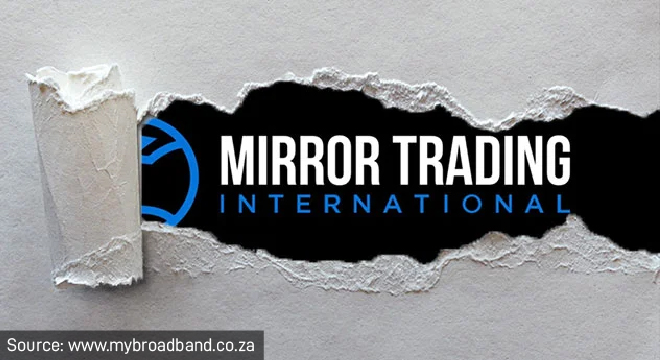The FSCA has agreed to reconsider the R50 million penalty it imposed on Mirror Trading International (MTI) for conducting unregistered financial services business in contravention of the FAIS Act.
The Financial Services Tribunal published the consent order, dated 13 April, in terms of which both parties have reached an agreement in terms of which the FSCA will set aside the fine and reconsider the matter.
MTI was placed in liquidation in December 2020.
Two weeks ago, Moonstone asked the FSCA for an explanation of why it has agreed to reconsider the penalty, but no response has been received to date.
However, Moneyweb quoted the FSCA’s head of enforcement, Brandon Topham, as saying the Authority did not oppose the liquidators’ request that the penalty be set aside.
“We recognised that the administrative penalty, which was imposed on MTI rather than the individuals running it, would reduce the pay-out to members, so we saw no reason to continue pursuing recovery of this amount.
“However, we reserve the right to impose administrative penalties on the individuals involved in the running of MTI at some point in the future, if the situation merits it,” Topham said.
MTI claimed to offer automated trading services, initially in forex and later in cryptocurrency derivatives. It accumulated billions of rand worth of Bitcoin during 2019 and 2020.
Blockchain data platform Chainalysis named MTI the biggest cryptocurrency scam of 2020 in its 2021 Crypto Crime Report.
MTI presented itself as a passive income source, promising investors consistent daily returns of 0.5%, which translate to an annual gain of 500%.
The scheme collapsed at the end of 2020 after chief executive and founder Johann Steynberg disappeared. Steynberg was arrested in Brazil in December last year.
Court documents last estimated that 29 421 Bitcoin flowed through MTI – about R17.7 billion at current exchange rates. However, it has been claimed that more than 46 000 Bitcoin passed through the scheme.




No doubt MTI must have had auditors – do they get to keep their fees and remain blameless, as in every other case of public and private corruption and theft?
One wonders what “smoke and mirrors” would emerge, if ever an independent audit was conducted between the investor statements (liabilities) of asset managers compared to the market value of their unencumbered asset holdings.
Would the claimed rates of return hold up? Or would they collapse like a deck of cards, if ever there was a run on money if investors pulled out.
Many an investor could be left feeling as queasy about “solid, FSCA regulated” funds as with unregulated crypto ; rubber stamp audits and regulatory compliance doesn’t mean a thing.